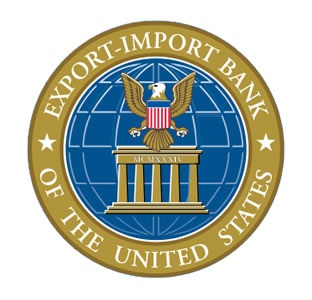I have mentioned in previous posts that some of the nuclear nations have made export of nuclear technology a priority for their international trade. The United States, France, Japan, Russia and China are all busy bidding to build nuclear power plants in developing countries. In France, Japan, Russia and China, their governments are part or whole owners of the major nuclear companies. These state owned enterprises benefit from a great deal from their close relationships to their countries central governments. In some cases, there are special loans and grants given to foreign governments to make nuclear deals more attractive.
The United States government does not have such a close relationship with U.S. nuclear technology companies. Some of these companies are complaining that without help from the U.S. government, these companies cannot compete with their counterparts in other countries where the governments are intimately involved with their nuclear industries and exports.
The U.S. Export-Import bank was established by President Franklin D. Roosevelt in 1934. "Its mission is to assist in financing the export of US goods and services to international markets." The bank's charter is set to expire at the end of September this year. Congress is currently considering reauthorization of the Ex-Im Bank.
The U.S. National Association of Manufacturers recently held a meeting to highlight the need for the continued existence of the Ex-Im Bank. At that meeting, the President and CEO of Westinghouse, a U.S. nuclear technology firm, said that from "the energy industry perspective, the Ex-Im Bank is an absolute necessity in order to compete globally against state-funded and state-subsidized companies." He said that Westinghouse had often relied on the Ex-Im Bank to help foreign customers with financing for Westinghouse projects.
The nuclear reactors in Ukraine rely on fuel provided by Russia. Last year, an attempt was made to load Westinghouse fuel rods into a Ukranian reactors but the Westinghouse rods did not fit and the attempt was abandoned. Now Ukraine is working on a project to design and build a central spent fuel repository. Holtec International, a firm involved in the project, is seeking funding from the Ex-Im Bank for the Ukrainian fuel repository. Holtec says that such a repository will help Ukraine escape their current total dependence on Russia.
U.S. nuclear technology companies are arguing that the Ex-Im Bank is an important part of U.S. foreign policy. The Ukrainian repository project is held up as an example. Russia has been offering countries such as Vietnam a Build-Own-Operate deal for nuclear reactors which U.S. companies claim is anti-competitive. Russia has already used restriction of fuel flows to Europe as an economic weapon. If countries sign on to long term contracts with Russia for nuclear reactors, they will be making themselves vulnerable to energy blackmail if they resist Russian foreign policy.
Some members of the U.S. House of Representatives House Financial Services Committee claim that the Ex-Im Bank has been making loans to state owned enterprises in Russia. They say that the Ex-Im bank is actually working against making the U.S. competitive in international trade. This group wants to let the Ex-Im Bank expire.
With respect to nuclear technology, it may not be possible for companies to finance new reactors in foreign countries without the help of our federal government. Considering all the problems with nuclear power, it might be better for governments to stay out the financing business.
